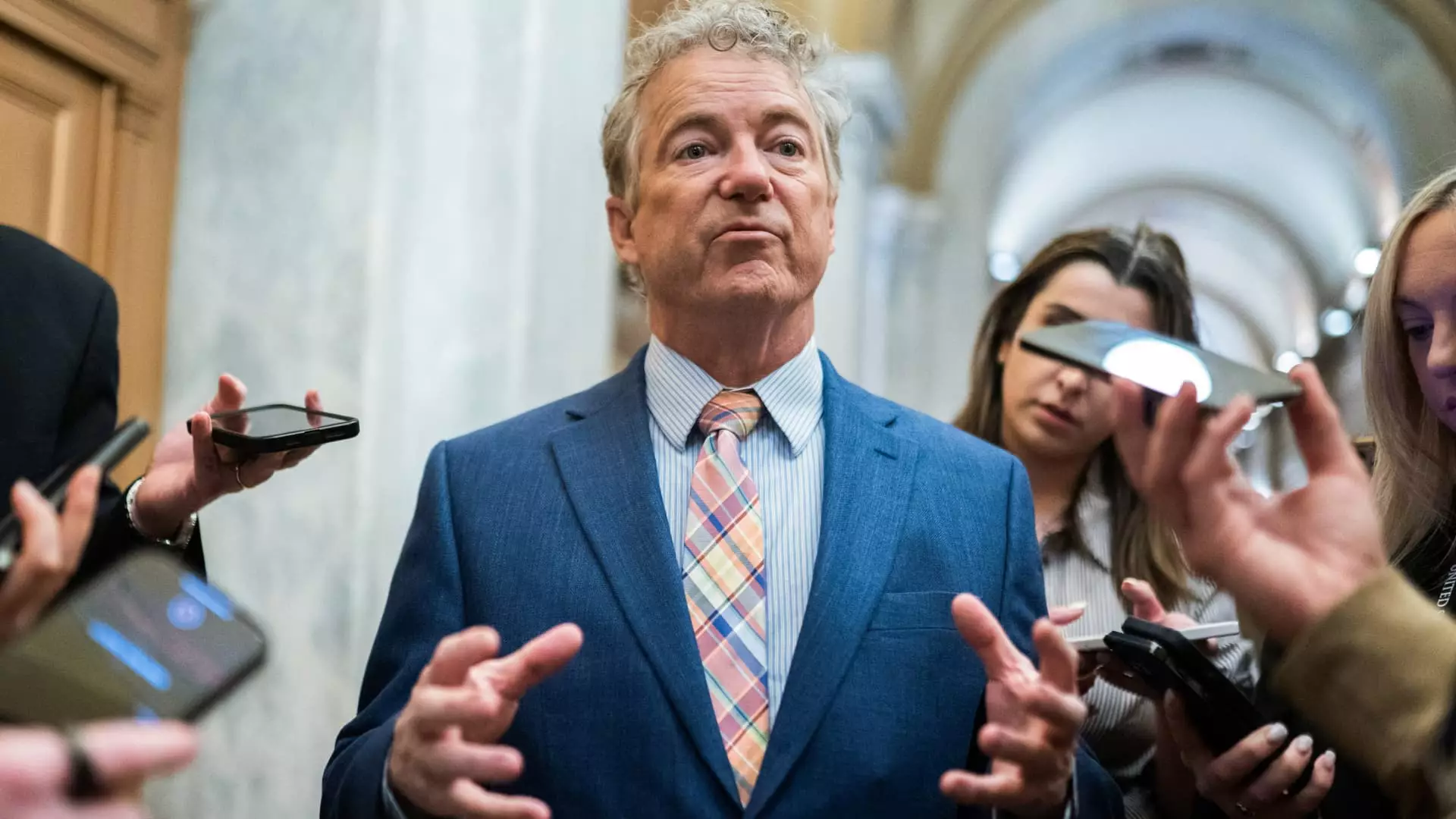In a fascinating yet disheartening spectacle reminiscent of a political arena, the confrontation between President Donald Trump and Senator Rand Paul unveils a poignant truth about the contemporary American political landscape: principled convictions have often succumbed to the siren call of power and expediency. Trump’s vociferous response to Paul’s dissent regarding the significant debt ceiling increase in the proposed budget bill starkly illustrates this divergence. As Paul leans into his libertarian roots by vocally objecting to a staggering $5 trillion hike in the nation’s debt ceiling, Trump characterizes him as a stubborn antagonist intent on obstructing necessary growth. This clash serves as a microcosm of a broader issue—an ever-widening chasm between fiscal responsibility and populist fiscal exploits.
Trump’s retort after being challenged reflects an overarching trend in politics where discourse has often devolved into personal attacks rather than substantive discussion of ideas. While it is easy to dismiss Paul as merely a “vote-no” politician whose principles stifle progress, one must consider the implications of a legislative environment that prioritizes short-term gains over sustainable economic policies. In doing so, Trump underestimates a profound sentiment echoed by many citizens: the concern regarding the burgeoning national debt isn’t merely an ideological tic; it is a serious apprehension with real consequences for Americans.
The Economic Shockwave of the “One Big, Beautiful Bill”
Trump’s “one big, beautiful bill” encapsulates a characteristic overstatement aimed at showcasing monumental support for his agenda. This rhetoric, however, shrouds a problematic reality—the bill expands debt exponentially while trumpeting the promise of growth. That growth spurred by such debt is portrayed almost as a panacea overlooks fundamental economic principles that have proven detrimental in various historical contexts. The national conversation shouldn’t revolve around whether or not to pass a bill that promises a sweeping tax cut coupled with burgeoning deficits but rather how to foster a sustainable financial future that does not place the onus of repayment on future generations.
Furthermore, Trump’s insistence that this immense financial leap will ultimately bring about “tremendous GROWTH” poses intricate questions about the veracity of such claims. In fin-de-siècle neoliberalism, the assumption that fiscal irresponsibility inevitably leads to growth holds grave implications for federal economic health. The very political fabric woven to support social programs like Medicaid and SNAP—programs that are already being called into question in this budget—is increasingly undermined by policies that prioritize short-term political victories over long-term economic viability.
Rand Paul: The Lone Voice of Caution or an Obstructionist Outlier?
While Trump derides Paul’s criticism as lacking substance, it’s essential to recognize the arguments posed against heavy borrowing and excessive spending. By drawing attention to the implications of a $5 trillion debt increase, Paul calls on his colleagues—and the country—to not shy away from addressing the imperative of fiscal responsibility. His advocacy for enduring tax cuts garners support, but there remains an essential interplay between such measures and the long-term costs they engender. If responsibility means sacrificing immediate political gains for the sake of economic maturity, then Paul’s stance resonates with a poignant urgency.
Moreover, the limitations imposed by the reconciliation process that Democrats often wield to sidestep minority dissent risks transforming governance into a mere exercise in expediency, rather than deliberations representative of diverse viewpoints. This is where Paul’s challenge becomes important—it demands a rethinking of the mechanism through which policies are passed, promoting a more robust discourse that respects differing opinions while still capitalizing on the political realities of our current system.
From Debate to Dialogue: The Way Forward
Ultimately, the spectacle between Trump and Paul reveals a pressing need for America to transition from shallow debate to meaningful dialogue. Diverging positions around fiscal policy should evoke not merely derision but reflective discussions on essential economic paradigms. As citizens watch their leaders spar on platforms dedicated to undermining rather than elevating each other, the critical question must be raised: Does this foster a future where economic policies are reflective of genuine public needs, or are we perpetuating a cycle of political theater that distracts from urgent fiscal imperatives?
In dislodging ourselves from the fantastical narrative spun by Trump, perhaps we could engage with the complexity of financial governance. Paul’s dissent isn’t just another political defection; it embodies a call for accountability amidst growing national debt—a clarion call that, if ignored, might unravel the very economic fabric that binds the nation together. The time is ripe to embrace substantive discourse that prioritizes enduring solutions over superficial political victories that merely serve the immediate whims of the powerful.

Leave a Reply